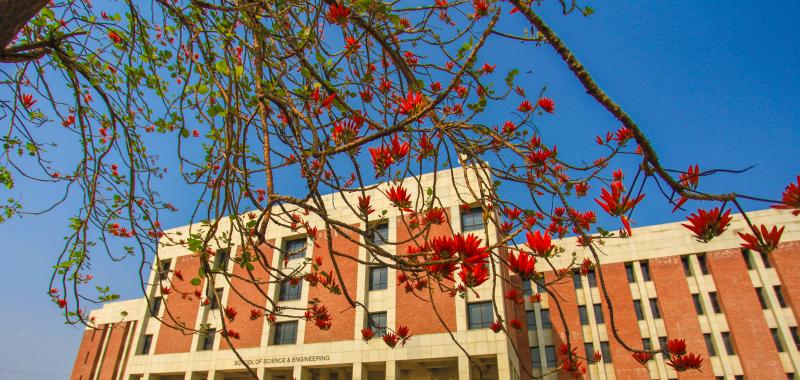
Dr. Naveed Ul Hassan, Assistant Professor, Electrical Engineering (EE) Department, Syed Babar Ali School of Science And Engineering (SBASSE), LUMS and Mr. Muhammad Bershgal Atique, EE major, Batch of 2017, attended and presented their work at IEEE International Conference for Communication (ICC) 2016. IEEE ICC is one of the two flagship conferences organised by the IEEE Communications Society every year. This year, the conference was held from May 23 to May 27, 2016 in Kuala Lumpur, Malaysia. The technical programme included 960 peer reviewed papers organised into 13 thematic symposia, covering the latest research and development trends in communications.
The title of the research paper was “Tradeoff in Delay, Cost, and Quality in Data Transmission over TV White Spaces.” Due to the transition from analog to digital TV broadcasts, some spectrum in the very high frequency (VHF) and ultra- high frequency (UHF) bands, commonly called “TV white space” (TVWS) has been vacated and made freely available in several countries. TVWS and Cognitive Radio (CR) technology could potentially encourage the emergence of numerous small cognitive wireless network operators (SCWNO). These small operators could be managing few base stations or they can form coalitions with other SCWNOs or traditional operators to provide novel wireless services. However, spectrum competition among the interested CR operators is also expected to increase. In this situation, providing Quality of Service (QoS) guarantees would become challenging. To broaden the range of services and applications that can be supported with QoS guarantees, some portion of TVWS can be designated as high priority channels (HPC). This spectrum can be temporarily leased (by paying a small fee) for short term use by the interested operators depending upon their needs. In this context, interesting new problems emerge, such as the economic viability of SCWNO. These issues are considered in this paper and appropriate constrained optimisation problems are developed, solved and numerically evaluated to capture the tradeoffs in delay, cost and data quality. The ideas presented in this work have many useful applications, including machine to machine (M2M) communications in smart grid for demand response management, peak load reduction and energy cost minimisation.
Soon after his sophomore year, Bershgal started working on the problem under the supervision of Dr. Naveed Ul Hassan. Bershgal Atique was one of the very few undergraduate students at the venue and he found the experience very enriching. He has the following message for SBASSE undergraduate students, “We are at a point where fields like quantum communication, molecular communication, IoT and millimeter wave technology are emerging. In this scenario, bio-chemistry modern physics and other subjects that were taught to us in our freshmen year are extremely relevant as new innovations will be at the cross roads of various disciplines”. Dr. Naveed Ul Hassan feels that slowly and gradually SBASSE is getting closer to the point where the impact created by the faculty, graduate and undergraduate students is being recognised and praised at the global stage.
Conference travel of Dr. Naveed Ul Hassan was supported by FTG, LUMS and Higher Education Commission (HEC). SBASSE provided partial funding for Mr. Bershagal Atique’s conference travel.

